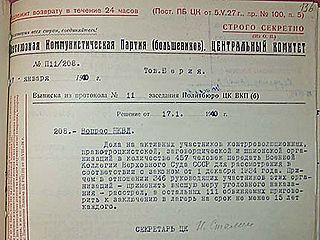Politburo
Executive committee of a communist party From Wikipedia, the free encyclopedia
A politburo (/ˈpɒlɪtbjʊəroʊ/ ⓘ) or political bureau is the highest political organ of the central committee in communist parties.[citation needed] The term is also sometimes used to refer to similar organs in non-communist parties, such as the Political Bureau of Hamas.[1] Politburos are part of the governing structure in most former and existing communist states.

Names
The term politburo in English comes from the Russian politbyuro (политбюро), itself an abbreviation of politicheskoye byuro (политическое бюро 'political bureau'). The Spanish term Politburó is directly loaned from Russian, as is the German Politbüro. Chinese uses a calque (Chinese: 政治局; pinyin: Zhèngzhìjú), from which the Vietnamese (Bộ Chính trị 部政治), and Korean (정치국, 政治局 Jeongchiguk) terms derive.
History
Summarize
Perspective
This section needs expansion. You can help by adding to it. (October 2022) |
The first politburo was created in Russia by the Bolshevik Party in 1917 during the Russian Revolution that occurred during that year.[2][3] The first Politburo had seven members: Vladimir Lenin, Grigory Zinoviev, Lev Kamenev, Leon Trotsky, Joseph Stalin, Grigori Sokolnikov, and Andrei Bubnov.[4]
During the 20th century, politburos were established in most Communist states. They included the politburos of the USSR, East Germany, Afghanistan, and Czechoslovakia. Today, there are five countries that have a politburo system: China, North Korea, Laos, Vietnam, and Cuba.[5]
Marxist–Leninist states
In Marxist–Leninist states, the communist party claims to be the vanguard of the people, therefore the legitimate body to lead the state. The party selects officials to serve in its politburo, which decides party policy. As a one-party state, party policy invariably becomes national policy.
Each Party Congress elects a Central Committee which, in turn, elects the members of the politburo, secretariat, and a general secretary. This process is termed democratic centralism. In theory, the politburo is answerable to the Central Committee, however in practice all the authority lies with the politburo.
Trotskyist parties
In Trotskyist parties, the Politburo is a bureau of the Central Committee tasked with making day-to-day political decisions, which must later be ratified by the Central Committee. Its members are chosen by the Central Committee, who appoints it. The post of General Secretary carries far less weight in this model. See, for example, the Lanka Sama Samaja Party.
See also
- Eastern Bloc politics
- Executive committee
- Orgburo
- Politburo of the Communist Party of the Soviet Union
- Politburo of the Chinese Communist Party
- Politburo of the Communist Party of Cuba
- Politburo of the Communist Party of Vietnam
- Politburo of the Communist Party of India (Marxist)
- Politburo of the Lao People's Revolutionary Party
- Politburo of the Party of Labour of Albania
- Politburo of the People's Democratic Party of Afghanistan
- Politburo of the Polish United Workers' Party
- Politburo of the Workers' Party of Korea
- Political Bureau of the Central Committee of FRELIMO
- Politburo of the Zimbabwe African National Union – Patriotic Front
- Presidium
References
External links
Wikiwand - on
Seamless Wikipedia browsing. On steroids.
